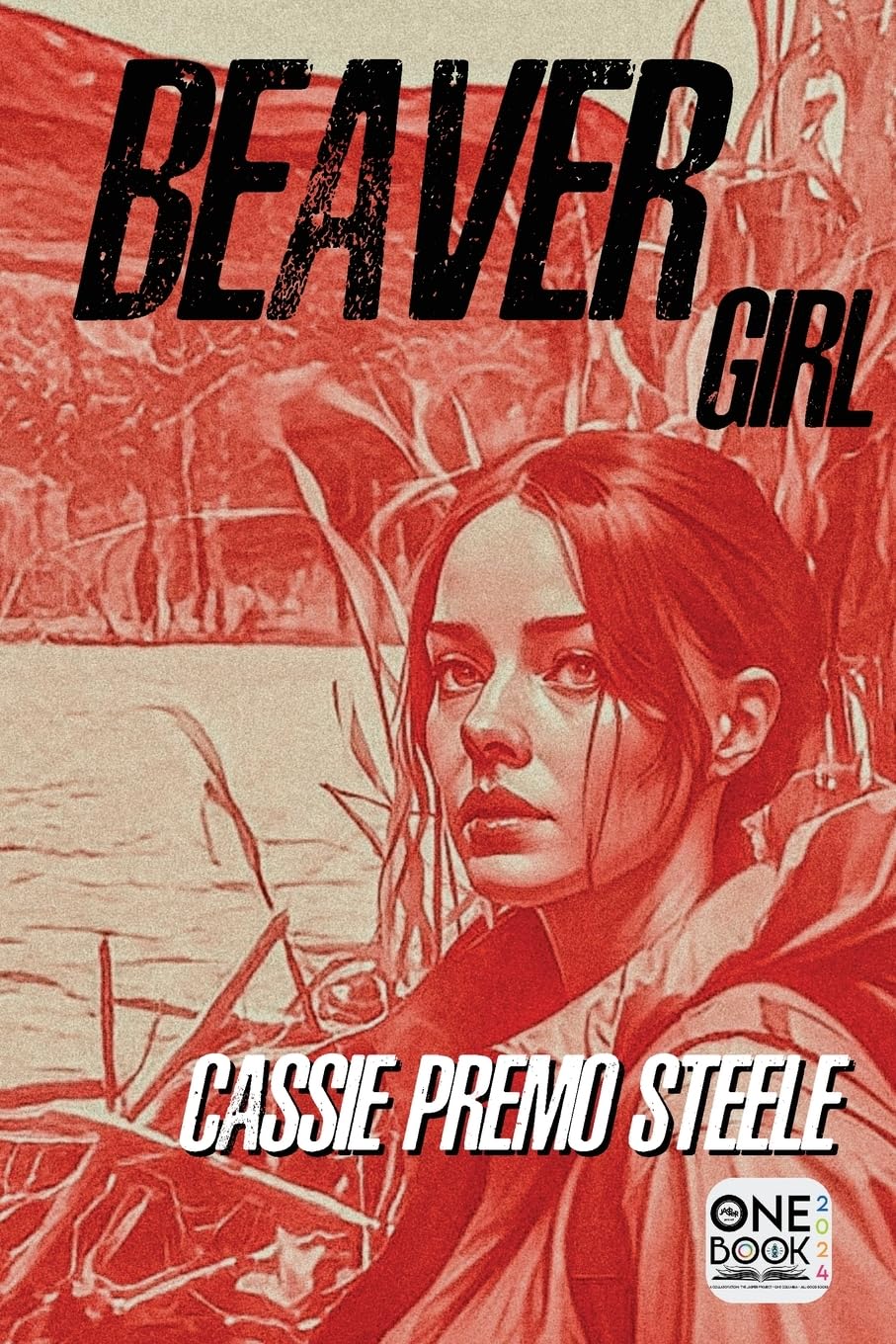Review of Beaver Girl by Cassie Premo Steele

Beaver Girl
Cassie Premo Steele
Anxiety/Outcast Press, 2023, 260 pages
$16.00
Reviewed by Sarah Parsons
I am often wondering where all the climate stories are. Climate change, biodiversity loss, and general ecological collapse are, after all, among the most existential issues we face, are they not? Perhaps these stories are too impersonal, I sometimes think, or too bogged down in scientific jargon to be accessible or appealing to the average reader. Yet in Beaver Girl, a digestible and compelling dystopian novel, Cassie Premo Steele makes it clear that climate fiction is more present and engaging than ever.
Beaver Girl exists in a world which hints at an eerie but possible future for us all–a world ravaged by climate disaster, viruses, and general collapse. Within this world, which has largely seen an end to familiar capitalist systems, people have had to invent new ways of living. This is challenging, given that resources are in short supply and human contact carries the risk of disease or death. Yet, in the absence of all that is familiar, Steele creates a story of reconnection and returning to the ecosystems that we exist within.
The story follows two protagonists: a nineteen-year-old girl named Livia and Chap, the patriarch of a small beaver family. When a wildfire descends upon Livia’s community, she finds herself seeking a new home beyond the human world. Joining a large and rich canon of queer stories about chosen family, Beaver Girl shows the perspective of seeking family and connection beyond human terrain, which is what I find to be so unique about the novel. What lessons can we learn from the animals and plants living among us? Through the split perspectives between Livia and Chap, Steele highlights the varied struggles the characters face and the ways in which they learn to live in proximity to one another. As Livia deals with the aftermath of grief and loss while growing into her adulthood, Chap deals with the fear of caring for his family as his home is under threat. Steele seamlessly weaves ecological knowledge throughout the text, helping the reader access a deeper understanding of the characters (particularly the non-human beings) that populate the story.
Readers of all ages who enjoy dystopian fiction will likely connect with this book, though I think it is particularly suited to YA readers and those with a developing curiosity about the world we live in and the ecology that connects us all. This will also appeal to those like myself who appreciate the intersection between queer narratives and climate stories. What I find perhaps most effective about Cassie Premo Steele’s Beaver Girl is the ultimate sense of hope or resilience the reader is left with, which is endlessly important in stories about our changing world.
Sarah Parsons is a Sinister Wisdom intern and writer based in Oregon whose work can be found online in Paperbark Magazine.
"Empowerment comes from ideas."
― Charlene Carruthers
"Your silence will not protect you."
— Tourmaline
"Gender is the poetry each of us makes out of the language we are taught."
— Leila Raven


